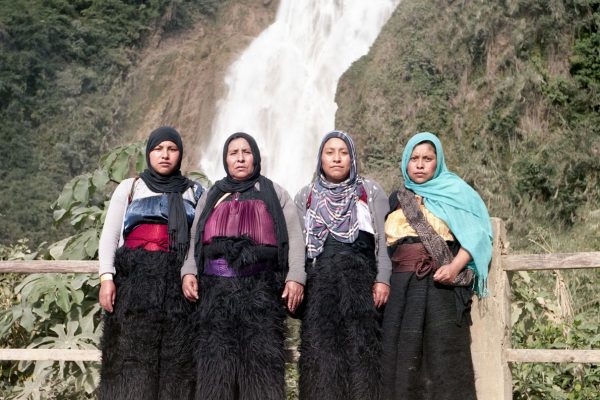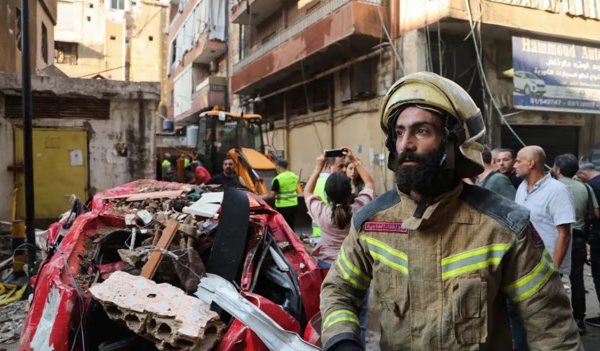Zakat Foundation of America’s Latin America Programs Coordinator recalls some of her earliest experiences on the job.
Zakat Foundation of America’s Latin America Programs Coordinator recalls some of her earliest experiences on the job.
It was Veronica De Pasquale’s first assignment alone for Zakat Foundation of America. She remembers two boys well — not their names, but their joyful spirits despite the tragedy. They had lost their homes in a massive landslide in La Paz, Bolivia, in March 2011. These two boys had lost their home and father, she said, yet they seemed unaware of the loss. They were playful and sweet.
Veronica arrived in La Paz and teamed up with the local government to assess needs in the camps. As part of their efforts, they donated more than 500 mattresses to victims of that season’s heavy rains.
The landslide, which was caused by heavy rains, had destroyed more than 300 homes in La Paz, and at least five people had drowned in La Paz when a minibus was swept away by an overflowing river, the BBC reported back in 2011. Across Bolivia, weeks of heavy rain had killed at least 40 others and left more than 10,000 homeless, according to the report.
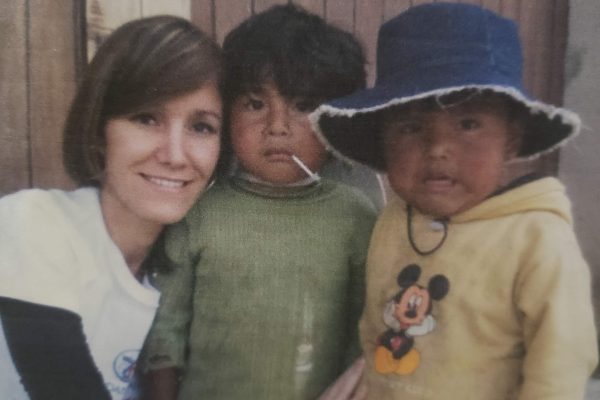
Now, 10 years later, De Pasquale is heading an office opening in Cordoba, Argentina. As Zakat Foundation of America’s Latin America Programs Coordinator, she’s lining up meetings with mayors, township representatives, nonprofit organizations, and more now that Argentina’s January recess is complete. The number of people in each meeting will be limited in accordance with COVID-19 public health and safety precautions.
Zakat Foundation of America leadership chose Cordoba — Argentina’s second-largest city — as the site for its office because its infrastructure, resources, and location make it an ideal hub for program coordination, aid distribution, and travel for medical and relief teams in the area. De Pasquale spoke more about this in a Q&A, discussing the humanitarian organization’s impact on the region.
Her trip to Cucuta, Colombia, left its mark on her. She arrived with Leticia Escamilla, a former Zakat Foundation programs coordinator, and they met with the local government early in the day. They went to the main bridge bordering Venezuela, where more than 30,000 people crossed daily into Colombia to buy food and medicine, to vaccinate their children, or to continue their journey on foot to other Latin American countries.
Some crossed with the hope that they would get help for sick relatives who couldn’t get to the border, only to realize they can’t do much, as no one was allowed into Venezuela.
“Leticia and I were amazed at the number of children alone, or with parents or relatives,” De Pasquale said. “Newborns being brought for the first vaccination, or pregnant women arriving to give birth at a tent where at least they will be assisted by medical staff.”
That day, they went to the supermarket and spent the rest of the day preparing meriendas (Spanish for “snacks”) for children, De Pasquale said.
Some were immediately reported as being low on sugar. They looked so thirsty, so hungry, she said.
“Who knows how many days they had spent without eating anything?” De Pasquale asked. “It was a really heartbreaking experience.”
From about 695,000 at the end of 2015, the number of refugees and migrants from Venezuela has skyrocketed to over 4 million by mid-2019, according to data from national immigration authorities and other sources, as reported by the United Nations High Commissioner for Refugees in June 2019.
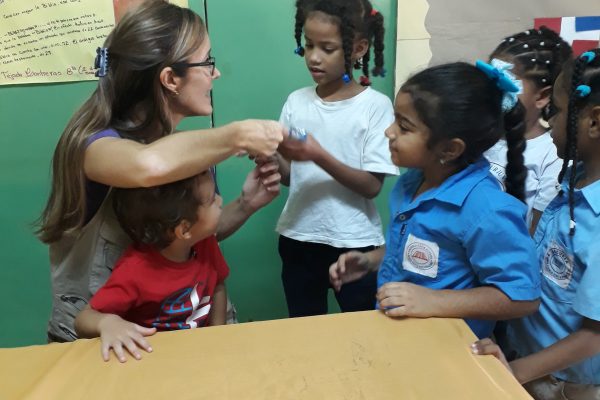
“I love taking my son, Liam, to our events whenever possible,” De Pasquale said. “Since he was a baby, he has experienced what giving is, and what ‘we are all equals’ means. This is what I try most to teach him.”
She took her son with her to celebrate Day of the Girl at a remote and vulnerable school in Santo Domingo, Dominican Republic. She talked to the girls about their rights, about Malala Yousafzai, and more. They were happy — thrilled — to hear a story so different from their realities, she said. To hear the world outside is different, and their world can be, too.
“Liam gave them the gifts we prepared, and I hope the experience taught him about the importance of respecting girls and being a healthy boy,” she said.
Liam enjoys going to English classes with his mother. He sits down and takes the class as one of the students.
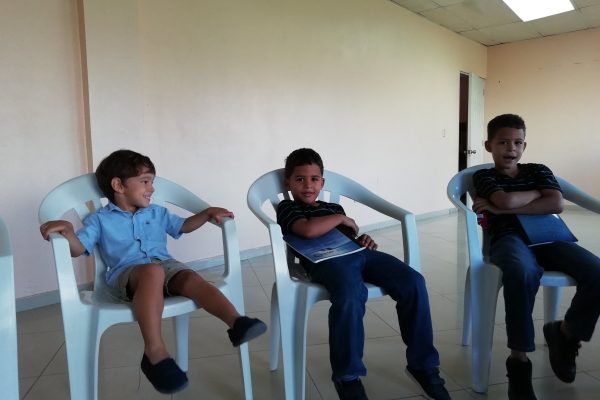
De Pasquale helped Zakat Foundation of America establish a small office in Santo Domingo and started English-language immersion programs for young adults. These classes are offered in extremely poor neighborhoods. The two-hour time they had on Saturday mornings was a big break for them, De Pasquale said, adding that it helps these young ones get away from problems at home. More education programs are in the works, but emergency relief efforts and the overall pandemic situation has forced an audible.
Zakat Foundation of America leaders believe the Cordoba office gives its donors a strategic humanitarian boost to build on already thriving women’s and girl’s vocational empowerment programs in the region. It also helps extend computer and language training for the area’s young adults.
